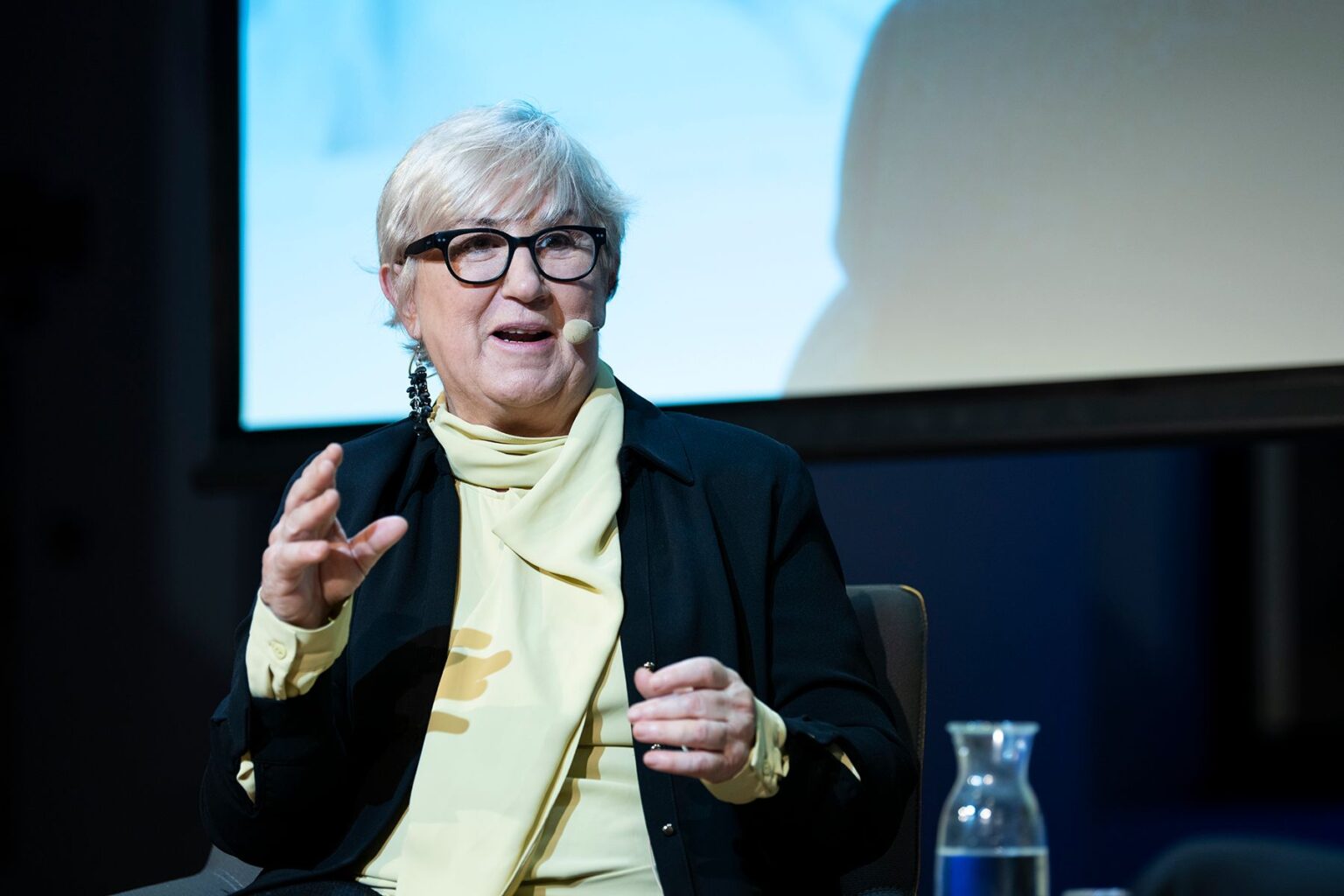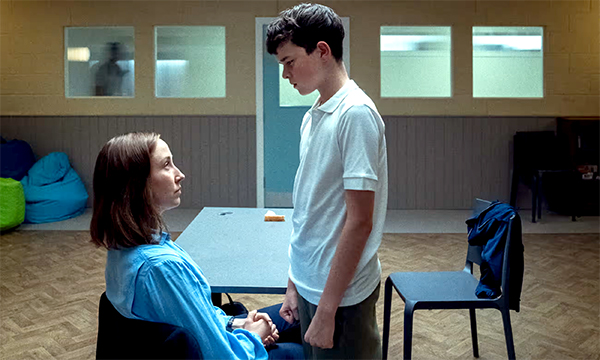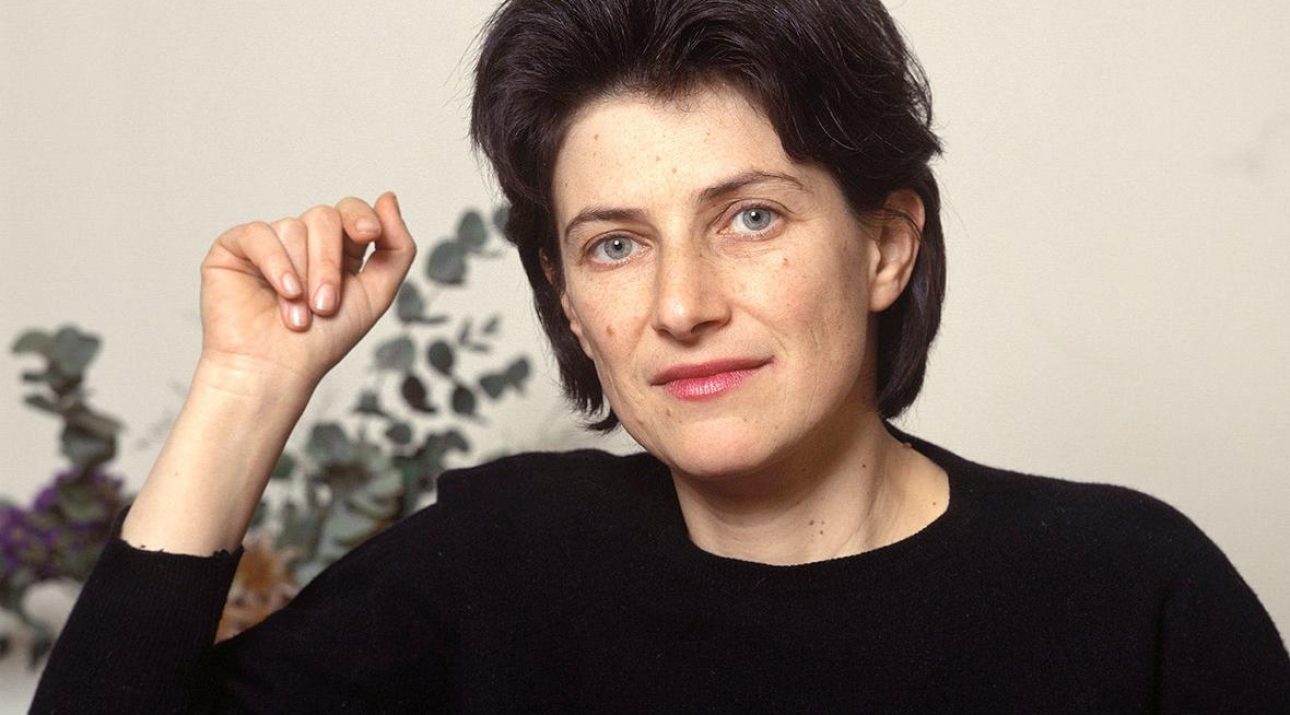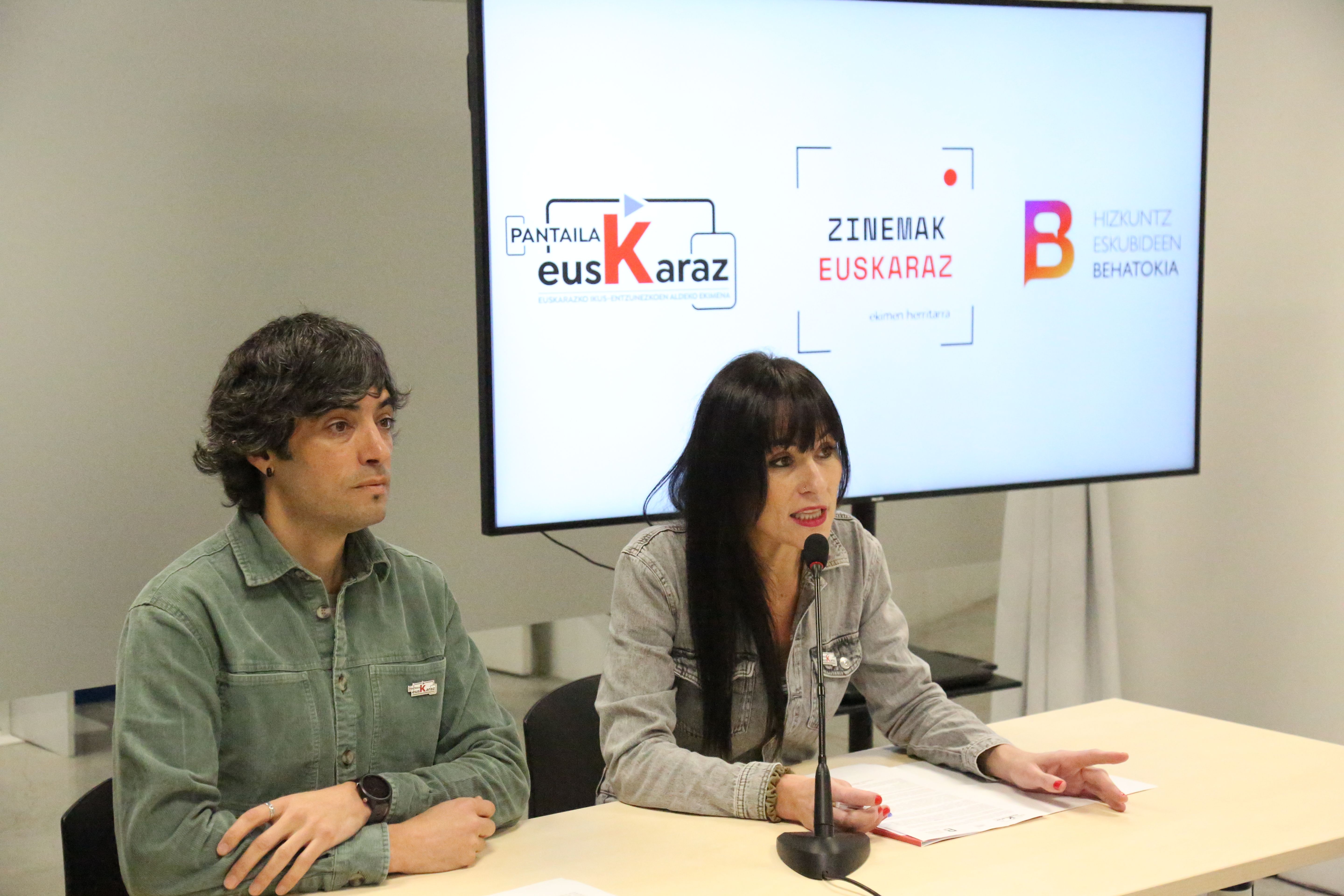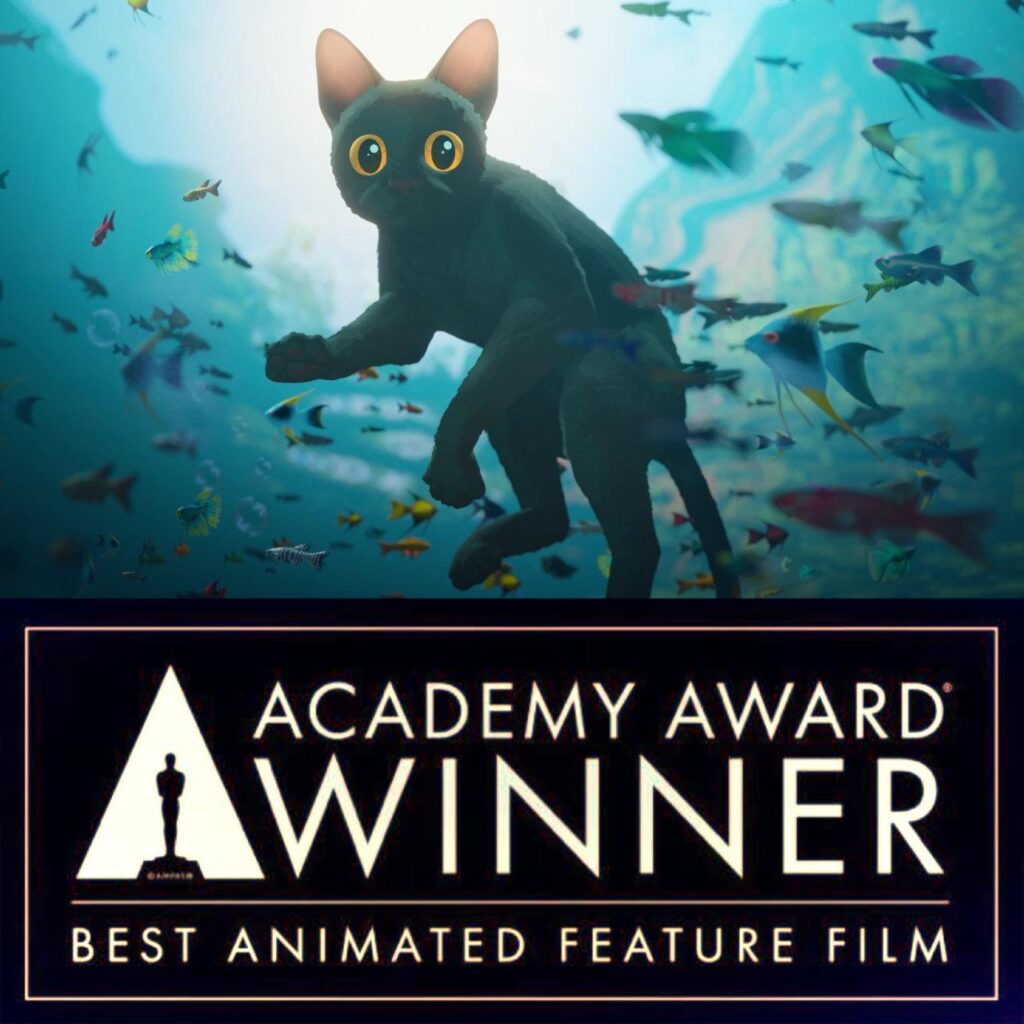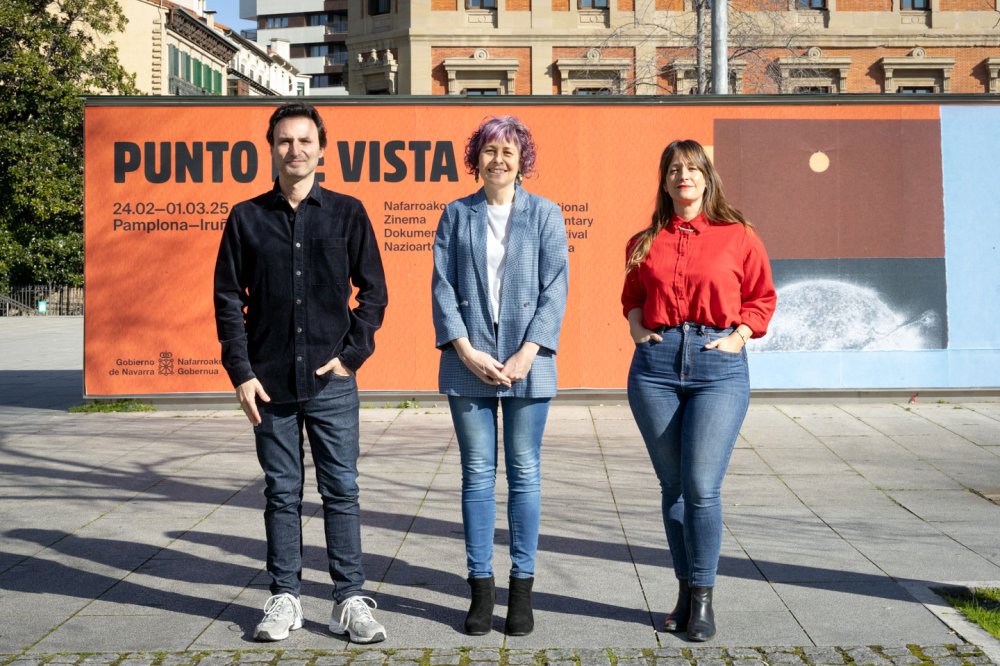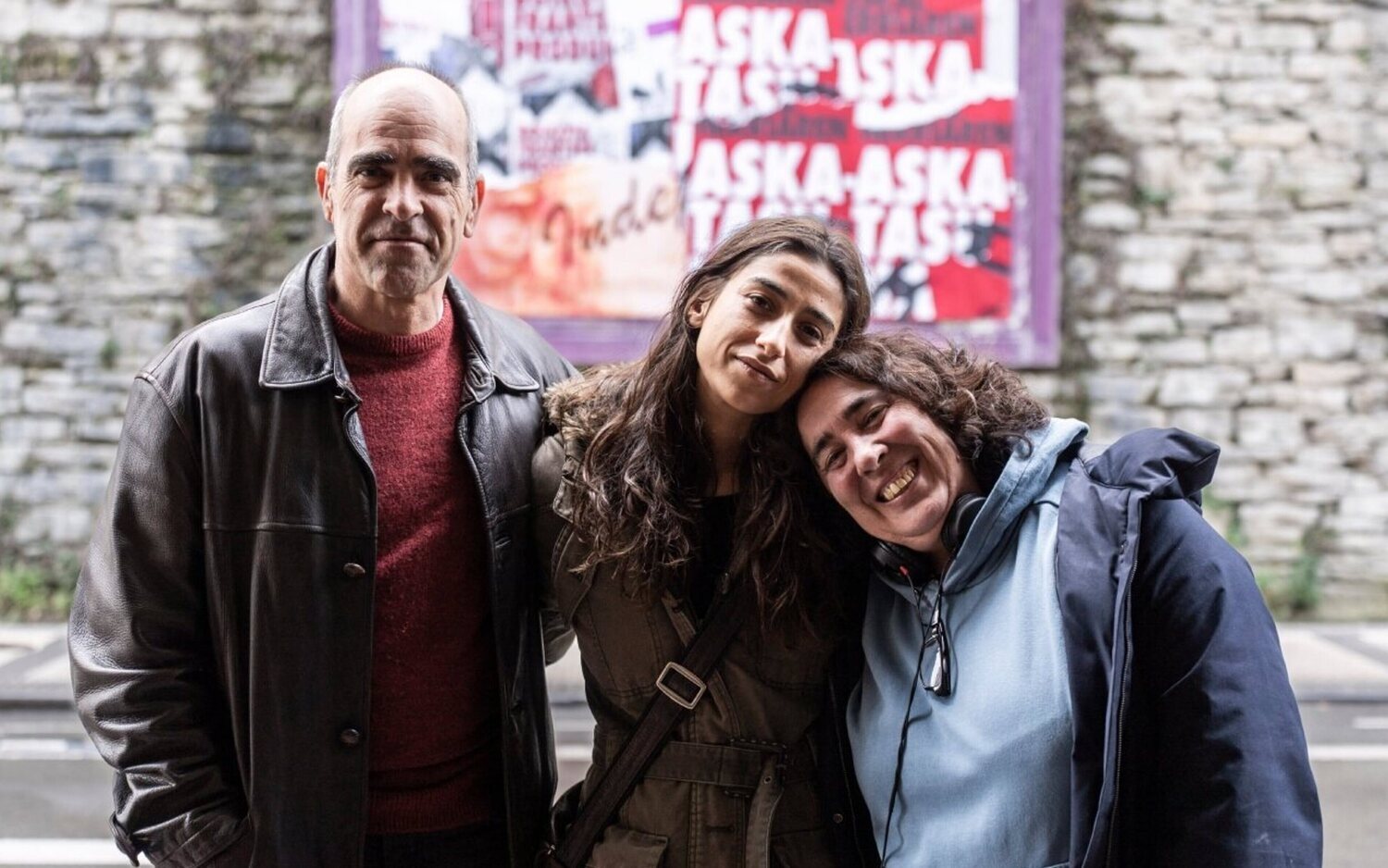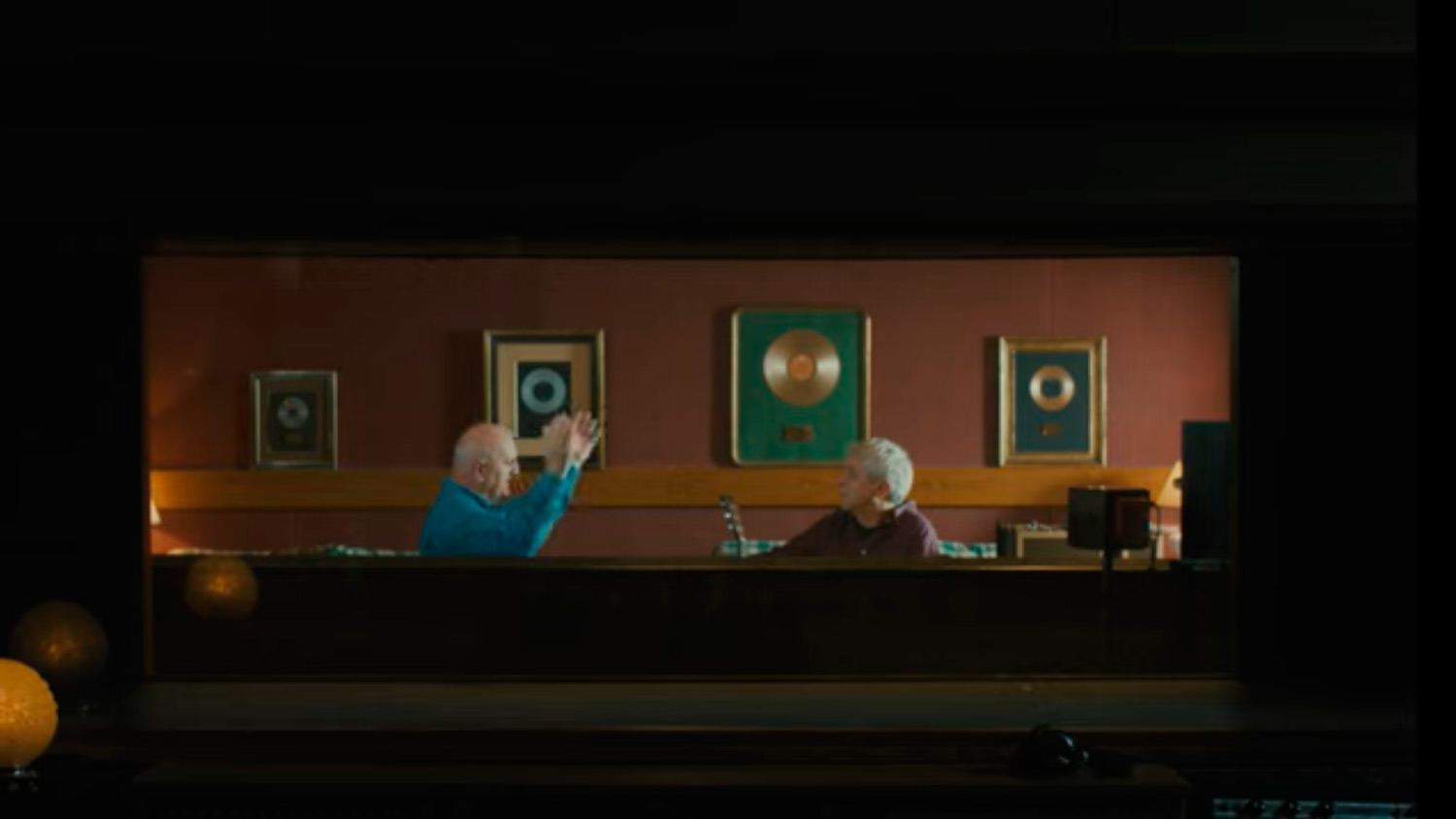"Filmmakers are more courageous than public institutions"
- Two films in two years. The film director of Zarauztarra Telmo Esnal has released in a short time two totally different works: Dantza (2018) and Agur Etxebeste! (2019), the latter with Asier Altuna. We are talking about its process of realization, the rhythm of life of the film director and the complex situation of Basque cinema.
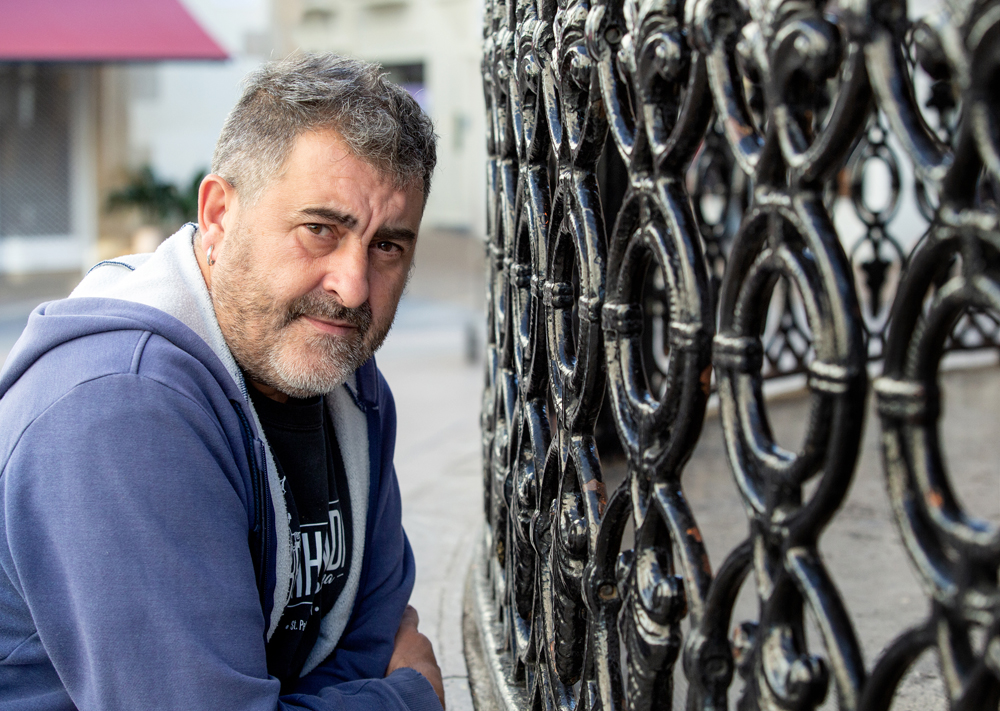
Laughing says: “My next film will be released in fourteen years’ time.” Until this year he has been doing them every seven years and now, with two consecutive editions, he is estimated to be unemployed for at least fourteen years. However, it intends to break with this background. However, he tells us that the last few years have been hard and have ended up “wined”. He has travelled for a week to lighten his head, rest and take on new ideas.
When does a film director take a holiday?A film
director for use never has a holiday, but in any case he will be unemployed. You're or you're not on a project, there's nothing else. Now, for almost a month, we'll be in Argentina, Gari Otamendi, Dantza's dancer, and I, presenting the film in the Basque etxeas there. Nothing else I have to go back to Sardinia to a festival there, with the Dance as well. But well, in the meantime I'll keep working my head, I already have some ideas for the future.
You've made two films in the last two years. Your brain needs oxygen.
I ended up exhausted. I need a break now, because these last two years have been crazy. Before finishing the dance, Agur Etxebeste! We were getting ready. He spent the week in Euskal Herria [Asier] Altuna preparing the script, and at the same time he had his head in Madrid, where on weekends he was going to give the last touches to the sound of the other film. Imagine: we finished the Dance in Madrid on a definitive Sunday, and we started on Monday with the recordings of Agur Etxebeste!
"When I started as a film assistant, a lot of work was done in Euskera, but then the Basque Government's Culture grants were cut to finance the Guggenheim"
After 14 years, the Altuna-Esnal duo returns. What is the second part of the movie now?
After the success of the first film, we were asked in the short term to do the second one, but then neither Altuna nor I intended to do it, each one had other projects in mind. After ten years we were called again and the truth is that we received it with joy and humor; it was a gift to us. In fact, it has been nice to bring the group back together.
It is not normal for the second part of a film to be made after a decade. But since it could be a good option, Altuna and I got together and from the very beginning we were clear where to start. Patricio [Ramón Agirre] would be mayor and which mayor: one of the great waste pickers. The Gürtel case was then in full effervescence and we decided to enter it.
What do you remember from your first feature, Aupa Etxebeste! Why?
After a long absence of work in Basque, it was the first film in Basque for many generations. We received awards at the San Sebastian Film Festival, and many people moved – after Handia is the most viewed film in Basque. Years earlier, when I started as a film assistant, a lot of work was done in Euskera, but then the Basque Government's Culture grants were cut to finance the Guggenheim. That's why directors Enrique Urbizu and Alex of the Church, among others, went to Madrid, and most of the people who worked, we also did. At that time, Basque cinema had a great vacuum.
The European Union then established a law that stipulated that public administrations should allocate 6% of their Culture budget to works of fiction of their own production. A lot of money that went to television was then spent on film, and EITB contributed a lot to our surprise.
What?
They asked us to make a feature film in Basque. Aupa Etxebeste is here! We wrote it Altuna and I, and we intended to do it well until the EITB appeared. We showed them the script and they liked it.

Agur Etxebeste! films in the first ten days. It doesn't look like a bad figure.
It seemed very happy when we received the news, and it remains, but I've talked to the producers and they're not very happy. The truth is that more is always expected than has been received. I don't know exactly how many people have seen it already, but the rooms have been filled in all the places where we've been presenting the film: In Zumarraga, Bergara and Ondarroa for example. In Gipuzkoa, in general, the programs go very well; Álava and especially Vitoria-Gasteiz, also respond well; and Bizkaia is the territory that moves the least in a notable way. But well, people have had a really good time watching the movie and are very grateful for it, because that was the main goal.
In any case, I say in general, it is very difficult today to reach Basque consumers. It's very complicated: despite being in Euskera, they almost always carry subtitles so that those who don't understand it too, and we put comedy and action into it so it's easy to watch movies. However, Basque filmmakers are far from the number of audiences there were at the time of Aupa Etxebeste!.
Dantza, for his part, has had a very good reception and hearing, right?
These are two movies that you can't compare, but yes, it's great. Movies have a long life. One is for the public and the other is a historical and artistic film. The same cannot therefore be said for both.
You can see that you've worked a lot artistically.
It was a very tough, very big bet, and it brought us complications when it came to getting funding. It's been hard to explain it to people, because everyone looked at me as if they didn't understand me. They didn't understand it was without dialogue, and we forget that film started to be mute. Why can't you make movies today without dialogue?
The main idea was to make a good movie. First beauty, then argument. We've done a lot of work on it visually, but also as far as sounds are concerned. Xanti Salvador has done a great job.
"I still see the administration as insufficient. It seems to me that not enough is invested, even though there are more people and projects than ever before in the trade"
I've read that rounding Basque dances was a project you had in mind for a long time. Was it something you should be a dancer?
When I was young, when I danced often, I always said that someday I would make a film about Basque dances. I don't remember that, but in recent years I've had that idea in my head. I talked to Koldobika Jauregi, a production designer, to see if I wanted to do something with dance, and then we came together with Juan Antonio Urbeltz, a choreographer. In the end, I think more than a normal movie, we've done a job that brings together a lot of movies. In fact, it consists of 7 documentary chapters of 25 minutes each, in which something different is explained: what symbolism is behind each dance, what each tells, what history has had...
Dance is for me a testament to the Basque dances. Bear witness to something that is part of history. On the other hand, Jauregi’s work has been of great help to the general public. I believe that, and we have always agreed that if this film were made with a traditional axis, it would not have the welcome it has had.
We have already mentioned the hearing data. What has changed Basque cinema in the last two decades?
On the one hand, there's a lot more cinema than before, and there's a lot more work going on in technology. OK, but things are changing a lot. Filmmakers are more daring than public institutions, and I think that's the key. I still see the administration as insufficient. It seems to me that there is not enough investment, even though there are more people and projects than ever before in the trade.
It is amazing, for example, that of the Festival: many films are made in the Basque Country of all styles and genres, many of them made with little money. Everyone is seen in the Zinemaldia, and some are left out because there is no room for everyone. Anyway, Moriarti and a few of us stay at the top, so to speak, because we're always industry movies. That is why I say that production is very large, but that it must be protected, as few of them will go on television and much less on digital platforms.
What about digital platforms? Where is the market going?
As is normal, the producers are very comfortable. The one who manages to reach them bears a huge fortune, they pay a lot. After all, they have a lot of money and the market is gradually gaining, because, once it stays with the monopoly, only they will decide which film to make or which not. I've had that apprehension for a long time, and it's already happening. People go to films advertised by the TV channels Telecinco and Antena 3, which have great power, to always produce movies of comedy and thriller. They always fall within their remit, not just anybody.
The Trinchera Infinita has just entered Netflix with Errementari and Handia.
They are, above all, the producers' accounts. Anyway, not everything is so nice. The Trinchera Infinita, for example, has entered Netlix and will not be able to be present at more festivals on behalf of the multinational. The Mexican Alfonso Cuarón is also not happy with the producers' decision to sell the film Rome to the platform, as he said. But well, selling is also reasonable, because the lockers pay a lot more than you're going to win.
As a director, I have a lot of doubts about where our consumption habits are going. It's not the same to watch the movie on your mobile, on your computer or in the movies, because they're designed for the big screen. In addition, today we don't see two-hour movies because we think they're too long. Today we want to watch the movies on our cell phone, but you can't spend two hours looking at that little screen. That cannot be the case, the work is not appreciated.
No other land dokumentalaren zuzendari Hamdan Ballal kolono sionistek jipoitu zuten astelehenean bere herrian, beste hainbat palestinarrekin batera, eta Israelgo militarrek eraman zuten atxilo ondoren. Astarte goizean askatu dute.
Donostiako Tabakaleran, beste urte batez, hitza eta irudia elkar nahasi eta lotu dituzte Zinea eta literatura jardunaldietan. Aurten, Chantal Akerman zinegile belgikarraren obra izan dute aztergai; haren film bana hautatu eta aztertu dute Itxaro Bordak, Karmele Jaiok eta Danele... [+]
35 film aurkeztu dira lehiaketara eta zortzi aukeratu dituzte ikusgai egoteko Euskal Herriko 51 udalerritan. Euskarazko lanak egiten dituzten sortzaileak eta haiek ekoitzitako film laburrak ezagutaraztea da helburua. Taupa mugimenduak antolatzen du ekimena.
Pantailak Euskarazek eta Hizkuntz Eskubideen Behatokiak aurkeztu dituzte datu "kezkagarriak". Euskaraz eskaini diren estreinaldi kopurua ez dela %1,6ra iritsi ondorioztatu dute. Erakunde publikoei eskatu diete "herritar guztien hizkuntza eskubideak" zinemetan ere... [+]
Geroz eta ekoizpen gehiagok baliatzen dituzte teknologia berriak, izan plano orokor eta jendetsuak figurante bidez egitea aurrezteko, izan efektu bereziak are azkarrago egiteko. Azken urtean, dena den, Euskal Herriko zine-aretoak gehien bete dituztenetako bi pelikulek adimen... [+]
Otsailaren 24tik eta martxoaren 1era bitartean, astebetez 60 lan proiektatuko dituzte Punto de Vista zinema dokumentalaren jaialdian. Hamar film luze eta zazpi labur lehiatuko dira Sail Ofizialean; tartean mundu mailako lau estreinaldi eta Maddi Barber eta Marina Lameiro... [+]
A conference for architects has just been held in Madrid to discuss the crisis of the professional architect. They have distinguished the traditional and contemporary way of being an architect. What is traditional? From the epic architect who appears in The Brutalist, where... [+]
Itoiz, udako sesioak filma estreinatu dute zinema aretoetan. Juan Carlos Perez taldekidearen hitz eta doinuak biltzen ditu Larraitz Zuazo, Zuri Goikoetxea eta Ainhoa Andrakaren filmak. Haiekin mintzatu gara Metropoli Foralean.











